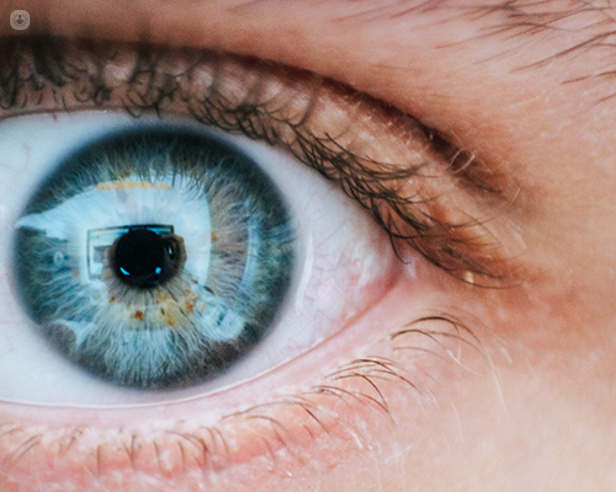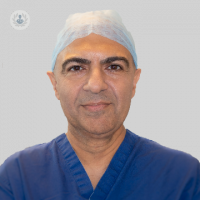Do I need cataract surgery or are there alternative treatments?
Written by:Cataracts are fairly common and being over 40 puts you at an increased risk of developing them. Surgery is definitely a treatment option you should consider but it’s not always your only option. Mr Sundeep Kheterpal is a consultant ophthalmologist based in Berkshire and Buckinghamshire who explains when you should undergo cataract surgery and what other treatments you should try beforehand to manage the condition.

Where do cataracts come from?
Cataracts are a clouding of the natural lens within the eye. Usually, they occur simply with age but sometimes they can be caused by your genetics, a medical condition such as diabetes or from taking corticosteroids. Occasionally, it can be related to an injury.
How do you fix cataracts?
Cataracts can be treated by wearing glasses or cataract surgery. Surgery is typically undertaken when the quality of your vision interferes with your day-to-day activities.
Cataract surgery is a straightforward procedure that takes roughly 20- 30 minutes. During the operation, your surgeon makes a small cut in your eye to remove the cloudy lens and replace it with a clear plastic one. It is usually carried out under local anaesthetic and you can leave on the same day.
Can cataracts come back?
After surgery, cataracts cannot come back. However, in some cases, the capsule behind the lens implant can become cloudy making the vision blurred again. This is called capsular opacification, which in the past was called a secondary cataract.
If this condition is very mild then treatment isn’t usually recommended, but if it interferes with your sight on a day-to-day basis then a procedure called YAG laser capsulotomy can be carried out to improve it.
What can I do to delay cataracts?
The majority of cataracts are due to getting older and therefore there isn’t much that can be done to delay the onset of them. Having diabetes or taking corticosteroid tablets can accelerate cataracts, so controlling the underlying medical problem is often helpful.
There are some theories about reducing light exposure (ultraviolet light) and using certain vitamins and supplements, however, these are not well-proven yet.
Do I need surgery if I have cataracts?
No. If the cataract is very mild then you don't need treatment, and often wearing the correct glasses will suffice. Your doctor will only suggest surgery if your level of vision affects your daily life, or in rare cases when the doctor needs to examine the back of the eye more thoroughly for medical conditions. If there are problems with inflammation or pressure in your eye, then a doctor may also suggest surgery, but this is quite rare.
Does it matter if I’ve had surgery for my cataracts previously?
Yes - you cannot have cataract surgery for a second time as there are risks involved with replacing a lens implant. If you cannot see properly, we may look to see if there is something else causing this other than cataracts.
There are other treatments available which you can also consider, including laser and lens options in which a surgeon places a second piggy-back lens on top of the first.
If you believe you have cataracts and would like to treat them, visit Mr Sundeep Kheterpal Top Doctors profile and book a consultation with him.


